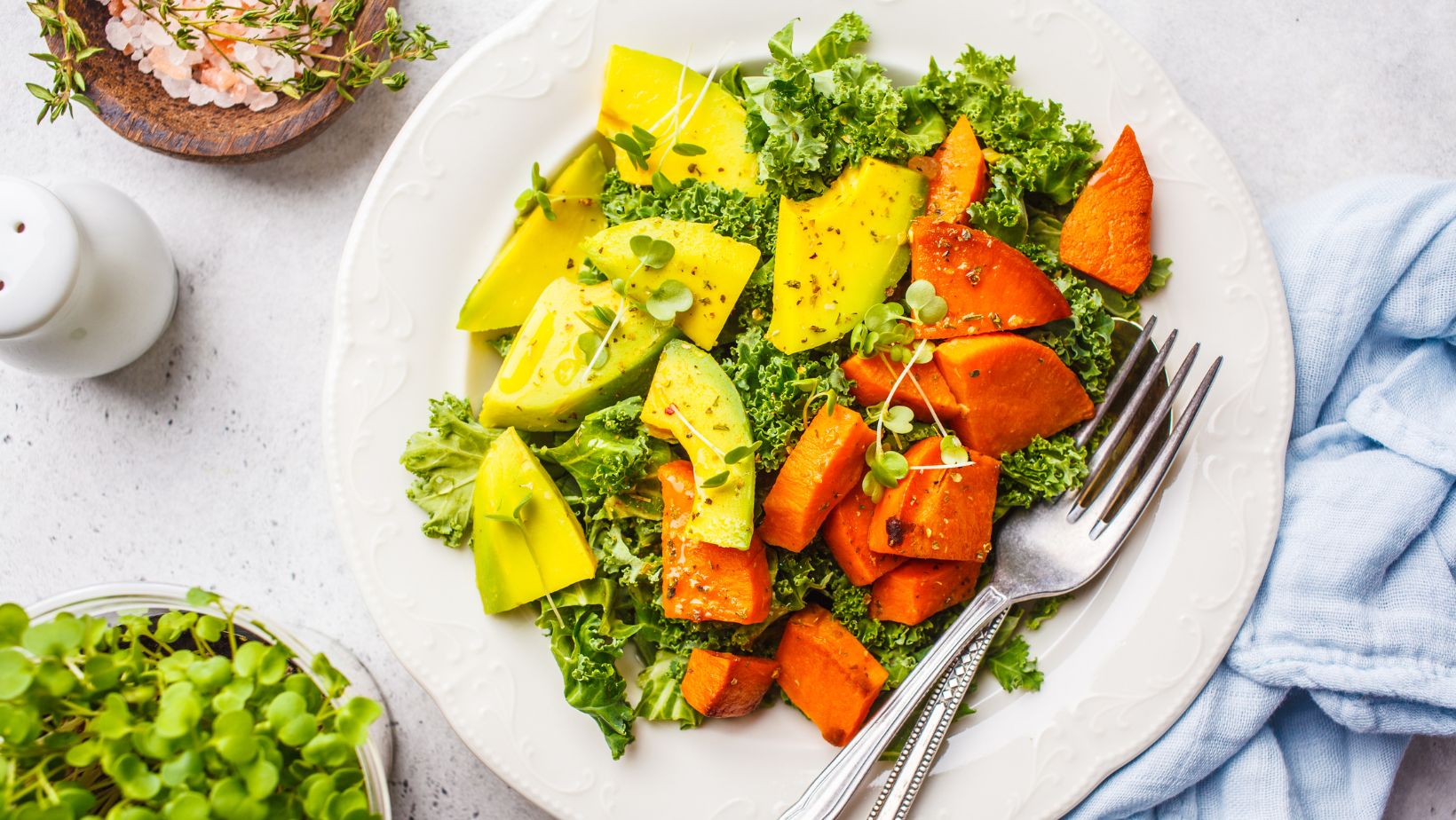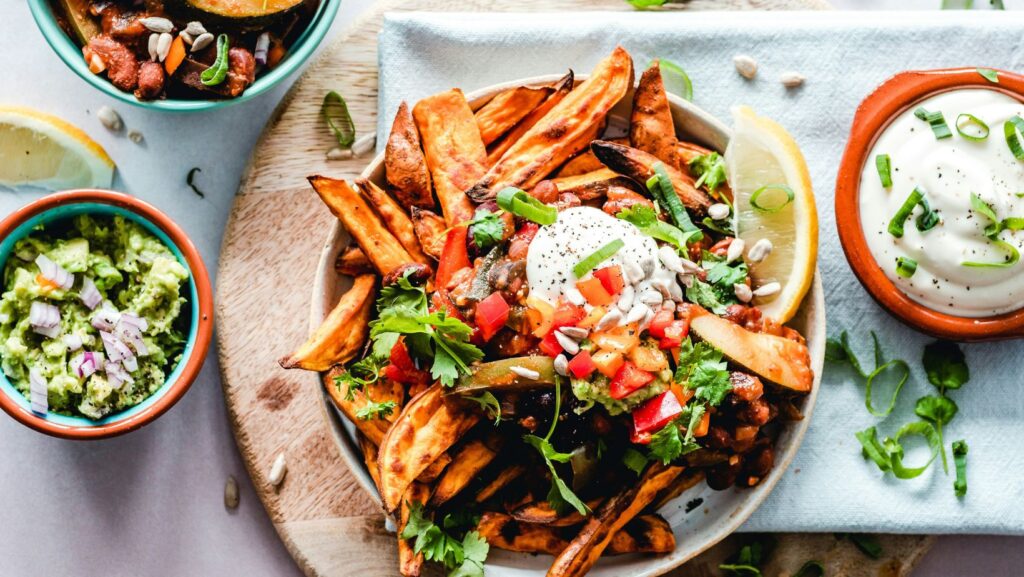In women, hormonal imbalance is the body’s way of sending a message that something’s off. Whether unreasonably high or low, hormones have a say in your metabolism, reproduction, or mood. So, hormones are everything, but balancing them seems pretty challenging.
Unfortunately, many conditions related to hormone imbalances are overlooked. Irregular menstruation, acne, or thyroid disease are often underrated, as women are getting a proper diagnosis and treatment many years after developing them. Therefore, living with hormonal imbalances for a few years can really mess up a woman’s body, triggering anxiety, autoimmune conditions, and weight gain.
While checking up regularly with your doctor is essential, there are ways to naturally balance your hormones, such as sleeping enough or managing stress. However, diet is one of the most critical factors in maintaining a healthy hormonal situation, so a plant-based diet may be worth trying.
What Does a Plant-Based Diet Include?
As the name suggests, a plant-based diet focuses solely on fruits, vegetables, legumes, and whole grains. It does not exclude meat or dairy but tips the scale toward eating meals from plant sources.
The Mediterranean diet is usually taken as an example as it contains plant-based foods, fish, poultry, and dairy, but only less often than plants. Unlike many, this diet isn’t restrictive, as you can enrich your meals with good fats (olive oil), whole grains (oatmeal), and vegetables and fruits. Leafy greens are also necessary because they provide you with nutrients. Spinach, microgreens, and watercress plants can thrive in a pot from elho, so you can be your own supplier for your diet.
How Can You Start a Plant-Based Diet?
If you typically include meat in your daily meals, the only difference in adopting this diet would be that you’d eat meat somewhere once a week, while fish, eggs, and milk a few times a week. Making a plan on what you’d like to eat on a daily basis would help significantly, but it’s best to take it easy on yourself.

If you need some inspiration, you can look at celebrities who enjoy gardening and healthy lifestyles. Oprah Winfrey, for example, has her own garden from which she consumes fresh vegetables, While Mark Ruffalo, who is also an environmental activist, loves flowers. Adopting a plant-based diet can push you towards gardening, whether with flowers or herbs. You could motivate yourself by getting some pretty flowerpots (pansies and violas are edible).
Regardless, these ideas for adopting the diet would help a lot:
- Meatless Mondays;
- Meal prepping;
- Food swapping;
What are the Other Benefits of a Plant-Based Diet?
Plant-based diets are great for managing hormonal imbalances and lowering the risks of chronic diseases or female-specific conditions. Eating well might help prevent the development of cardiovascular diseases or lower the chances of endometriosis.
A plant-based diet can also help with menstruation, settle ovulation, lower pain, and increase progesterone and folate, which are essential for women and mothers. Therefore, you may be able to maintain a healthy weight as well since cravings can be less aggressive, and your body will receive all the nutrients needed to feel full after eating.
It’s also important to start eating with intention and making mindful choices about what you eat. Planning your meals and keeping a food log will help you shop smart, so you’ll be less likely to waste food. Moreover, you’ll enjoy your meals prepared by yourself and be able to slow down and prioritize how you eat.
What to Be Wary of When Starting a Plant-Based Diet
While a plant-based lifestyle seems the perfect way to balance your life, you should be careful not to take it too far, especially when making a sudden shift. The diet can potentially lead to nutrient deficiencies, such as iron or B12, which are found in animal-based products. Therefore, you might want to take supplements to account for the lack of calcium or Vitamin D but also try to get it from certain foods.
At the same time, if you’re used to eating a lot of protein throughout the day, it might be challenging to approach this diet because plant-based meals do not contain enough protein to meet daily goals. Indeed, soy and quinoa are considerably helpful, but you need to be careful with this diet in regard to providing your body with the correct amino acid needs.
Finally, a plant-based diet takes a lot of time to plan, and you must be smart about it in order to do it in the long term. Ideally, you’d make a list at the end of the week with all the ingredients needed for your meals, but sometimes, you should pay more attention to ensuring diversity.
Other Ways to Balance Your Hormones
If you’re not fond of a plant-based diet or want to try it occasionally, you could try other ways to contribute to hormonal balance.

For example, you could try exercising regularly, whether you take long walks outside or go to the gym, because this is how nutrients are sucked into the body and helps your hormonal health.
At the same time, cutting down on sugar has numerous other benefits, such as nurturing insulin resistance and healing your gut microbiome. You can try eating more fruits or choosing to eat less refined sugars, which are found in many food products.
But what’s most important is to try and reduce stress. Getting lots of sleep will also contribute to a clearer mind, as insomnia fuels stress, but you might also try meditation. Relaxation techniques, yoga, and deep breathing should help you change your mindset and control your responses to stress.
What Do You Think about the Protein-Based Diet?
Eating a plant-based diet can help you balance your hormones, reduce the risks of developing health issues, and normalize your menstruation. Vegetables, fruits, and leafy greens are essential in this diet, but you can also consume meat and dairy a few times a week. If you want maximum results for your hormonal imbalance, a plant-based diet works best with exercising and lowering stress levels.


More Stories
A Beginner’s Guide to Growing Houseplants
Comprehensive Dental Care for a Healthy, Confident Smile
The Hidden Benefits of Upgrading Your Windows: Beyond Energy Efficiency